Oceans
Science News for Students articles on oceans
-
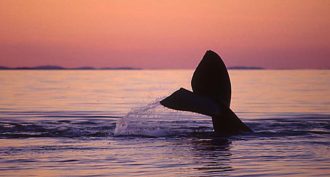 Animals
AnimalsWhat a drag! Fishing gear’s effects on whales
Many whales become entangled in the gear that fishing boats use to catch fish and shellfish. Such debris can have dire impacts on the big mammals.
By Ilima Loomis -
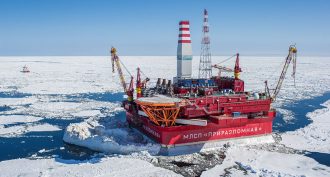 Oceans
OceansArctic ice travels fast, carrying pollution
Climate change is melting old sea ice in the Arctic. Now, younger, thinner ice is migrating far and fast, taking pollutants with it.
-
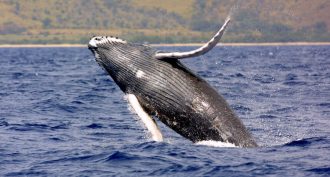 Ecosystems
EcosystemsAs big animals poop out
Whales move nutrients from deep ocean to surface waters. From there, nutrients move to land and fertilize continents. But the system is in trouble.
-
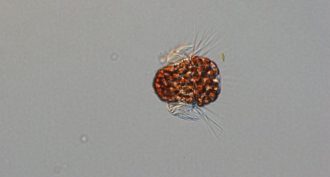 Oceans
OceansScientists identify plankton from space
Plankton are often too tiny for our eyes to see. But when huge numbers bloom at once, they now can be ID’d from space, a new study shows.
-
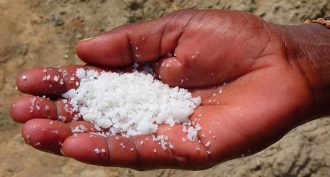 Environment
EnvironmentTable salt and shellfish can contain plastic
Bits of plastic have turned up in sea salts purchased in Chinese supermarkets. The finding suggests all sea salts may be similarly tainted. Shellfish too.
-
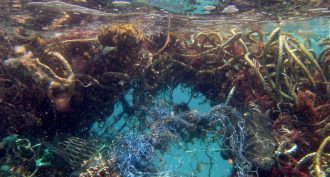 Environment
EnvironmentPlastic trash travels up to Arctic waters
Bags, fishing rope and other tiny bits of plastic are now polluting Arctic waters, posing threats to area wildlife.
-
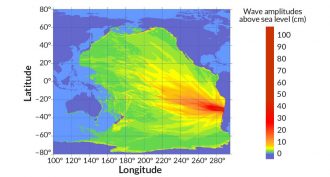 Earth
EarthQuake provides test for tsunami prediction
The 8.3-magnitude Chilean earthquake offered an unexpected chance to test a new way of predicting tsunami damage.
-
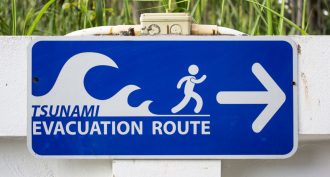 Oceans
OceansExplainer: What is a tsunami?
Earthquakes and landslides can create huge waves that travel across oceans.
-
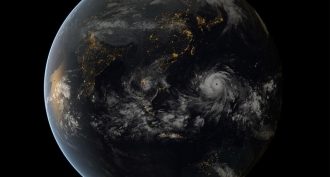 Climate
ClimatePacific hurricanes to strengthen as Earth warms
Global warming is heating up the oceans. That is causing waters to warm. As a result, Pacific storms — called typhoons — will become more destructive.
-
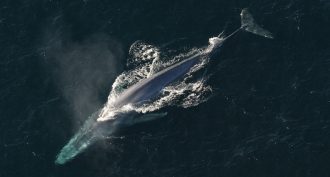 Animals
AnimalsA whale of a journey
The 5,200-kilometer (3,200 mile) journey of Isabela provides a window into the migration patterns of blue whales.
-
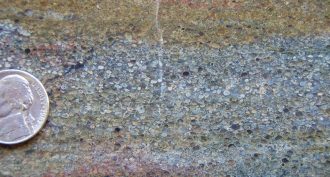 Planets
PlanetsAsteroids boiled young Earth’s oceans
At least two asteroids hit Earth 3.3 billion years ago. This superheated the atmosphere, boiled the oceans and shaped how early life evolved.
-
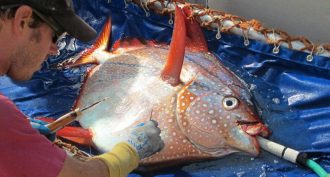 Animals
AnimalsThis is no cold fish!
The opah is the fish closest to the whole-body warm-bloodedness typical of mammals and birds. This trait may give the species an edge in the ocean’s cold depths.
By Susan Milius